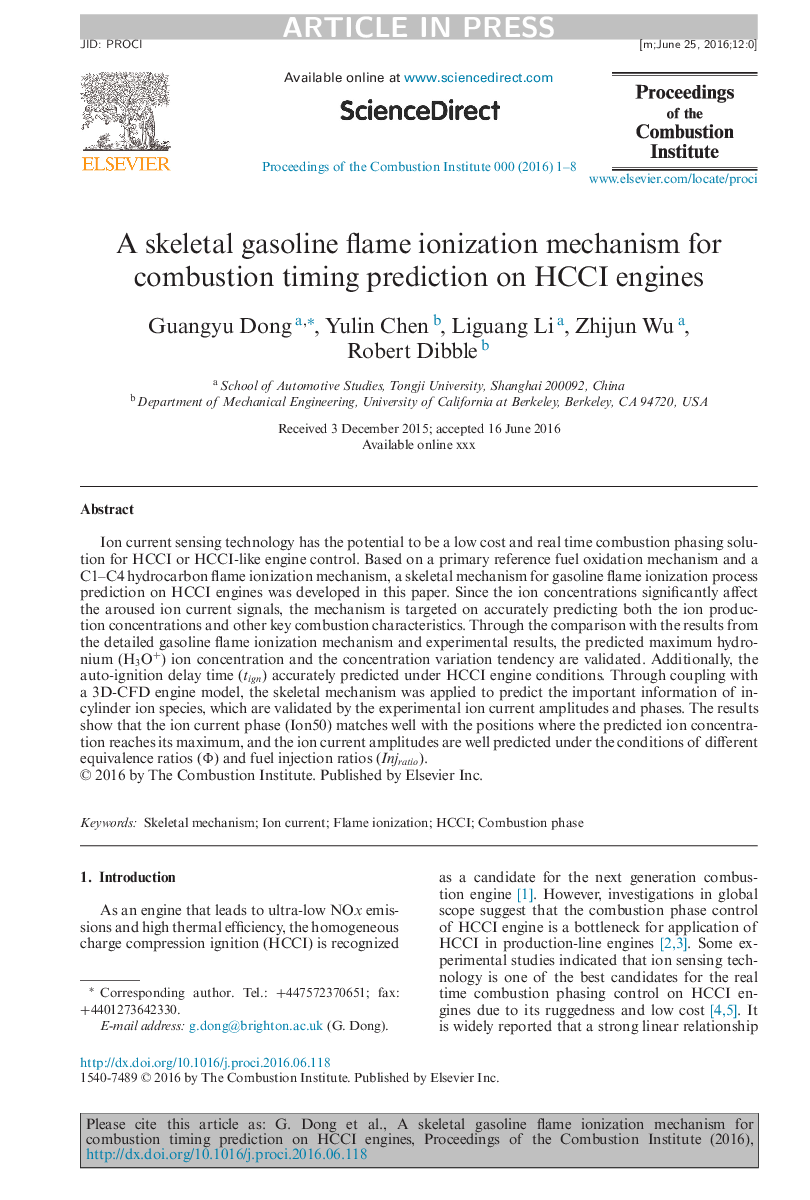| Article ID | Journal | Published Year | Pages | File Type |
|---|---|---|---|---|
| 4915423 | Proceedings of the Combustion Institute | 2017 | 8 Pages |
Abstract
Ion current sensing technology has the potential to be a low cost and real time combustion phasing solution for HCCI or HCCI-like engine control. Based on a primary reference fuel oxidation mechanism and a C1-C4 hydrocarbon flame ionization mechanism, a skeletal mechanism for gasoline flame ionization process prediction on HCCI engines was developed in this paper. Since the ion concentrations significantly affect the aroused ion current signals, the mechanism is targeted on accurately predicting both the ion production concentrations and other key combustion characteristics. Through the comparison with the results from the detailed gasoline flame ionization mechanism and experimental results, the predicted maximum hydronium (H3O+) ion concentration and the concentration variation tendency are validated. Additionally, the auto-ignition delay time (tign) accurately predicted under HCCI engine conditions. Through coupling with a 3D-CFD engine model, the skeletal mechanism was applied to predict the important information of in-cylinder ion species, which are validated by the experimental ion current amplitudes and phases. The results show that the ion current phase (Ion50) matches well with the positions where the predicted ion concentration reaches its maximum, and the ion current amplitudes are well predicted under the conditions of different equivalence ratios (Φ) and fuel injection ratios (Injratio).
Related Topics
Physical Sciences and Engineering
Chemical Engineering
Chemical Engineering (General)
Authors
Dong Guangyu, Chen Yulin, Li Liguang, Wu Zhijun, Robert Dibble,
